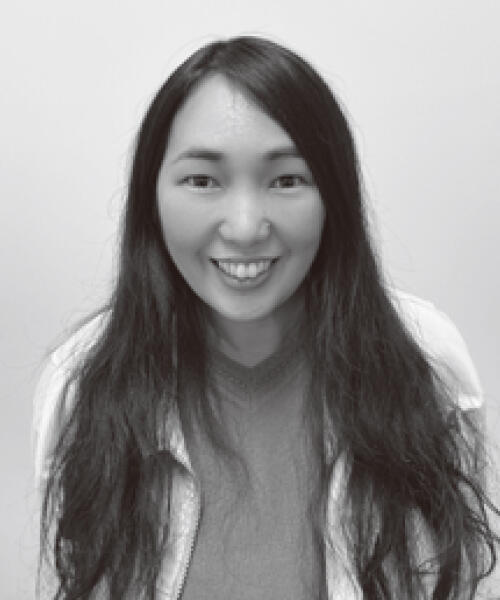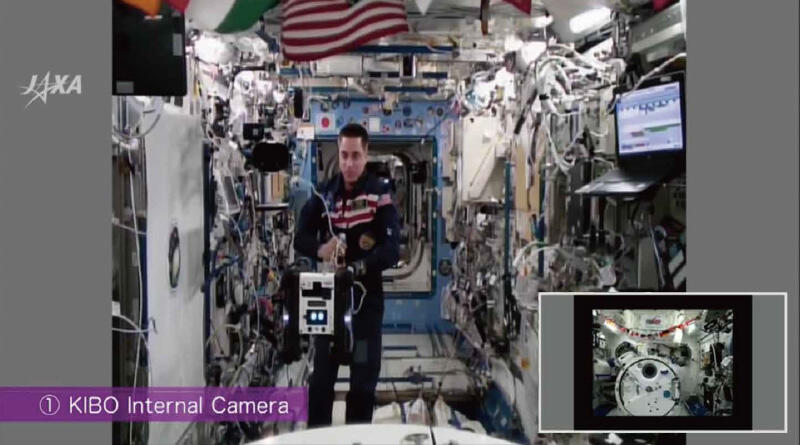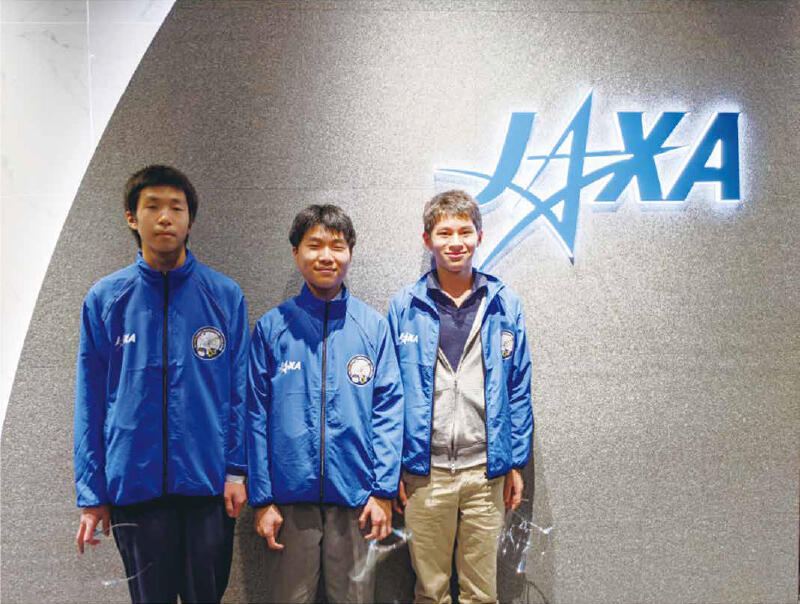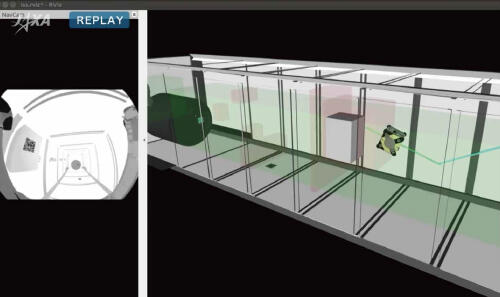Human Spaceflight Technology Directorate
Approximately 1,200 Students from the Asia-Pacific Region Participated
Student Programmers Compete in Operating a Robot aboard the ISS
In 2020, students from the Asia-Pacific region pitted their programming skills against each other in the 1st Kibo Robot Programming Challenge (Kibo-RPC) utilizing the Japanese Experiment Module "Kibo" onboard the International Space Station (ISS). Approximately 1200 students on 320 teams from seven countries and regions participated in Kibo-RPC. A qualifying competition was held in each country in June. Seven national teams emerged as the contestants in the final round held in October.
MIYAGAWA Yayoi, who was in charge of planning and running the competition, said, "The students managed to develop their tactics and improve their programming skills even though the coronavirus pandemic made it difficult for them to come together as a team." Astronaut YAMAZAKI Naoko was the master of ceremony for the final round, with Astronaut YUI Kimiya and others taking part as commentators. The various national teams and the ISS were connected via an online conferencing tool. Each team had come prepared with a mission program for operating the Astrobee drone robot onboard "Kibo" executed in a simulation environment reproducing the inside of the module. Teams were then ranked on the accuracy of their programs and the speed with which they completed their missions.
The teams then used their programs to compete in actually flying Astrobee onboard "Kibo." With the help of the astronauts on the ISS, the participants excitedly enjoyed watching Astrobee move through distant space following the programs they had created.
"All the teams were at a higher level than I had imagined, and any one of the teams could have come out the winner," said MIYAGAWA. The teams formulated their own strategies and applied them in a five-hour battle. In the end, the Japanese national team "Hypernova" won in the programming skill category.
"Hypernova was the youngest mixed team of junior high and high school students in Japan, and their unconventional tactics were impressive. The comments offered in English by the award-winning teams were themselves magnificent, and I was impressed by their remarkable language and speaking skills."
Kibo-RPC also contributed to "human resources development" that Japan is pursuing in its SDGs. "Kibo-RPC is very useful for improving participants' programming literacy, teamwork, task management, and strategic planning ability. The countries taking part have praised it as contributing significantly to their own human resource development. Expectations are high for the second competition."
Kibo-RPC is scheduled to be conducted multiple times by 2024. "After this competition ended, Singapore sounded us out about using "Kibo" for science and education," said MIYAGAWA. Regularly holding this competition should not only contribute to human resource development in Japan and overseas but also broaden the uses of "Kibo."
Profile

|
|
|---|
All the images are copyrighted ©JAXA unless otherwise noticed.
- Home>
- Global Activity>
- Public Relations>
- JAXA’s>
- JAXA's No.83>
- Student Programmers Compete in Operating a Robot aboard the ISS


